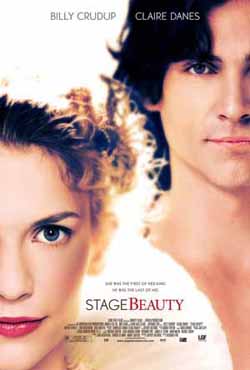 |
| Rupert Everett and Natasha Richardson in The Comfort of Strangers |
Cast: Rupert Everett, Natasha Richardson, Christopher Walken, Helen Mirren, Manfredi Aliquo, David Ford, Daniel Franco, Rossana Canghiari, Fabrizio Sergenti Castellani, Mario Cotone, Giancarlo Previati, Antonio Serrano. Screenplay: Harold Pinter, based on a novel by Ian McEwan. Cinematography: Dante Spinotti. Production design: Gianni Quaranta. Film editing: Bill Pankow. Music: Angelo Badalamenti.
Like Nicolas Roeg's Don't Look Now (1973), Paul Schrader's The Comfort of Strangers exploits the enclosed and labyrinthine character of Venice for sinister potential, but unlike Roeg, Schrader and screenwriter Harold Pinter, following Ian McEwan's book, make the city into a place where psychosis and not the supernatural seems to flourish. It was probably the wrong place for a handsome young couple like Colin (Rupert Everett) and Mary (Natasha Richardson) to come to, as they say, "work on their relationship." She is the divorced mother of two small children, an actress who does voiceover work for commercials; he's apparently some kind of editor, for he sometimes fiddles around with a manuscript that he proclaims "unreadable." But what matters more than what they do is how they look: They're quite beautiful. And that attracts the notice of Robert (Christopher Walken), a bar owner who surreptitiously photographs them and, we later learn, takes the pictures back to his opulent flat to show his disabled wife, Caroline (Helen Mirren). Eventually, Robert lures Colin and Mary to his bar, where he tells them stories of his past, of his cruel, overbearing father. Colin and Mary get lost on the way back to their hotel, and an exhausted (and perhaps drugged) Mary collapses, so they spend the night huddled in an alley. The next day, they agree that Robert is not someone they want to spend a lot of time with, but nevertheless he manages to find them and invite them to his apartment to meet his wife. The spider has lured them to his web. Eventually, we will learn that Robert is a psychopath and that his relationship with Caroline is sadomasochistic. That fact makes the emotional and sexual vulnerability of Colin and Mary more acute. This is one of those instances where the casting of an actor, namely Everett, inevitably adds a layer of significance to the character he's playing. Everett had come out as gay only the year before The Comfort of Strangers was made, and it's almost too easy to read this aspect of the actor's real life into his art. When we first meet Colin and Mary there's an element of sexual tension between them: They are sleeping in separate beds in their hotel room, and at one point she says that what he really needs is more sex. Later, after their encounter with Robert and Caroline has released something in them, Colin and Mary have passionate sex, but at one point he admits that he has always wondered what it's like to be the woman during sex. Robert, meanwhile, accuses Colin of being a "communist poof," and later tells him that he has told the men in the bar that Colin is his lover. I can't help feeling that Schrader has exploited Everett's real-life sexuality in the film, and Everett himself has notoriously advised gay actors not to come out of the closet if they want major careers -- his own hit the skids not long after the release of The Comfort of Strangers. Setting that aside, the film is opulently staged and filmed, well acted, and Schrader sets up the revelations of its plot and characters skillfully. But there's also something airless and perfunctory about it. I don't know enough about Colin and Mary to feel a sense of violation at what happens to them, to regard it as more than just formulaic psychological thriller stuff.
